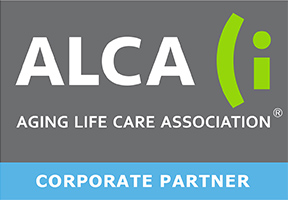12,000,000 adults over 65 live alone and as our society continues to evolve, so do our family dynamics. The number of seniors aging without children, sometimes referred to as “solo-agers” or “orphan elders,” is rising, with projections as high as 2,300,000 in just two years. These individuals face unique challenges and considerations when it comes to aging.
Solo-agers lack the inherent support system that married individuals, or individuals with children have. Single individuals without children typically develop close-knit groups of friends, and thus a family-like support system. However, often these friends are the same age and likely to encounter age-related challenges themselves. Because of this, early planning is critical to assure a solo-ager has a trusted team to address care, legal and financial concerns.
The following details these concerns, and resources to build such a team:
I. Solo-Aging Concerns: Research show solo-agers are greater risk of negative physical and mental health consequences, and financial abuse.
20% of solo-agers are considered “isolated”. Researchers identify this as one of the largest risks. Isolated seniors have higher rates of depression, anxiety, substance abuse, cognitive impairment, and death.
In addition to negative mental health effects, sole-agers are more likely to suffer negative physical health effects as well. For example, 52% of sole-agers living alone report falls in their home (according to the National Institutes of Health). The Centers for Disease Control indicates that falls are a leading cause of hospitalization, nursing home admission, and death.
What’s more, the National Institutes of Health and the Surgeon General cite research demonstrating social isolation is bad for one’s health as smoking 15 cigarettes daily (that’s nearly a full pack!)
Aside from the physical and mental health risks, solo-agers may be more susceptible to financial abuse. Individuals over 75, without children and/or a spouse, who manage their own finances without assistance may be predisposed to financial exploitation. Further, 70% of US wealth is controlled by the elderly, a prime target for financial scammers.
Considering the physical, mental, and financial health risks associated with solo-aging, the following sections detail legal, financial, social, and care solutions to provide peace-of-mind to solo-agers.
II. Legal Considerations: Solo-agers should take proper legal steps to ensure their affairs are in order as they age. Here are some key considerations:
Estate Planning:
Creating a comprehensive estate plan is crucial for solo-agers. This includes drafting a will, establishing powers of attorney for both healthcare and financial matters, and considering setting up a trust (a big question that depends on many factors). Consulting with a qualified elder care law attorney can help solo-agers navigate these complex legal matters.
General Durable Power of Attorney:
The criticality of designating another as your surrogate financial and personal decision maker (i.e., Power of Attorney) cannot be overstated. This provides peace-of-mind that someone trusted can manage finances, and personal if the ability to do is lost.
Without a power of attorney, it’s possible that a judge may need to choose a guardian to make decisions.
Healthcare Directives:
Clear instructions about healthcare and medical treatment preferences are needed, as is designating a surrogate to make these decisions if capacity is lost. Creating advance healthcare directives, such as a living will or a durable power of attorney for healthcare, allows individuals to appoint someone they trust to make medical decisions on their behalf.
Finding a Trusted Advisor:
Qualified legal counsel can be found in many ways. First, ask friends. If they’ve had a positive experience, chances are you will too. Alternatively, ask for guidance from another trusted advisor, such as an accountant, financial advisor, or physician.
III. Care Planning: Long-term care is frequently misunderstood. Solo-agers should familiarize themselves with residential options such as assisted living, personal care, continuing care retirement communities, home care and nursing homes. There are also unique programs. such as Senior Villages, senior centers, adult day centers, and other supportive environments.
As confusing as this may seem, there are resources to navigate this. Specialists in senior living, elder care coordinators and elder care law attorneys, along with aging life-care advisors, will help you cut through the confusion.
IV. Financial Considerations: Aging in America is expensive. Here are some financial considerations to keep in mind:
Financial Planning:
Solo-agers should strive to build a robust retirement nest egg (cash, investments, and retirement accounts). I encourage working with a financial advisor to develop an appropriate investment strategy, designed to maximize growth potential and minimize exposure to income taxes.
Social Security and Pension Benefits:
Understanding entitlement to Social Security benefits and any pension benefits is vital. Solo-agers should review their records and seek guidance to maximize their benefits.
Paying for Care:
Aside from understanding the types of care available, it is equally important to understand the cost of this care, how it’s paid for, and how to protect your finances to assure you can pay for care without going broke.
Public benefits, such as Medicaid and Veterans’ benefits have complex and rigid eligibility rules. Long-term care insurance (although often valuable) can be equally difficult to access benefits through; although it never hurts to explore long-term care insurance options. It’s beneficial to understand the process, rules, and how early planning can help protect assets and accelerate eligibility for those benefits.
V. Social Considerations: Maintaining an active and fulfilling social life contributes to positive cognitive, physical and mental health. Here are some social considerations to enhance their quality of life:
Building a Support Network:
Solo-agers should actively cultivate relationships with friends, neighbors, and community organizations. Joining clubs, volunteering, or participating in group activities can help combat loneliness and provide a sense of belonging.
Co-housing and Shared Living:
Exploring co-housing or shared living arrangements with like-minded individuals can offer a supportive environment and companionship. These arrangements often involve shared resources, responsibilities, and social interactions.
Social Technology:
Embracing technology can help solo-agers stay connected with loved ones and engage with online communities. Social media platforms, video calls, and online forums provide opportunities for social interaction and learning.
VI. Conclusion:
Aging without children, or close family presents unique challenges, but solo-agers can proactively plan for their future by considering the legal, financial, and social aspects of their lives. By taking the time to address estate planning, financial preparedness, and social engagement, solo-agers can navigate their later years with confidence and a strong support system. Remember, seeking guidance from professionals and actively seeking connections within the community are essential steps towards a fulfilling and enriching life as a solo-ager.
Guest Author:







